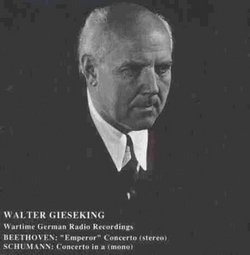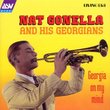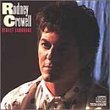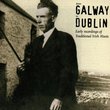| All Artists: Walter Gieseking, Furtwangler, Bpo Title: Wartime German Radio Recordings Members Wishing: 1 Total Copies: 0 Label: Music & Arts Program Release Date: 2/7/1995 Genre: Classical Styles: Chamber Music, Forms & Genres, Concertos, Historical Periods, Classical (c.1770-1830), Modern, 20th, & 21st Century, Instruments, Keyboard Number of Discs: 1 SwapaCD Credits: 1 UPC: 017685081521 |
Search - Walter Gieseking, Furtwangler, Bpo :: Wartime German Radio Recordings
 | Walter Gieseking, Furtwangler, Bpo Wartime German Radio Recordings Genre: Classical
|
Larger Image |
CD DetailsSimilar CDs
Similarly Requested CDs
|
CD ReviewsBuy it for the History; Enjoy it for the Art Doug | San Diego | 01/26/2000 (5 out of 5 stars) "Listen to the anti-aircraft volleys at 1:57, 5:20, 13:29, and 16:43 (the cadenza) of the first movement (preferably with headphones, so you can turn up the volume to capture this haunting aural image) and then be prepared to be astonished by the performance of this magnificent work. Presumably it was recorded at night-when British aircrews flew solo sorties (as opposed to the American formation-flying during the day) at intervals which, to judge by the ak-ak, were from 3 to 3-1/2 minutes. Whatever the case, this is a spectacular confluence of art and history with the Greater Berlin Rundfunk Orchestra playing as if their lives depended on it. Detractors of historic recordings can't fail to be impressed with the beauty and majesty of the second movement, a stirring, soulful melody which, if you were not acquainted with the horrors occuring inside Nazi Germany at the time, might make you wish you could help pass the ammunition." Stunning, intense, war-time Emperor Concerto Doug | 09/26/1998 (4 out of 5 stars) "This is just about the most intense Beethoven "Emperor" Concerto on record, recorded in Berlin in 1944. Gieseking's playing is truly overpowering (in contrast, for example, to his 1951 recording with Karajan). The thoroughgoing organisation and emotional logic and intensity of the orchestral contribution leads one to imagine that Furtwangler is on the podium in the Beethoven as well as the Schumann. The Schumann has been issued before (DG, paired with Schumann's cello concerto), but is rather flawed. The stereo (!) sound on the Beethoven is superior to most recordings of the time." A treasure Doug | 11/17/1999 (4 out of 5 stars) "The recording of Emperor Concerto on this CD is worth having not only for the wonderful performance, but also for the historical signifigance. This version of the Emperor Concerto was recorded in stereo on magnetic tape; at a time when this technology had just been invented and was still experimental. Also there was an air raid going on outside while this recording was being made. Listen closely on a good stereo system. There are a few places where you can hear the explosions outside."
|

 Track Listings (6) - Disc #1
Track Listings (6) - Disc #1



